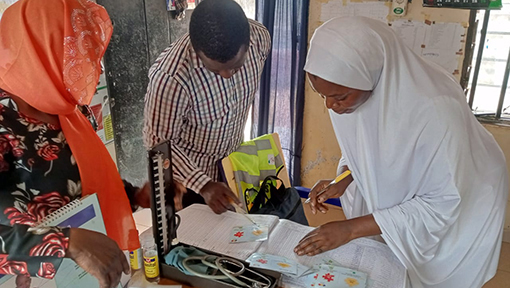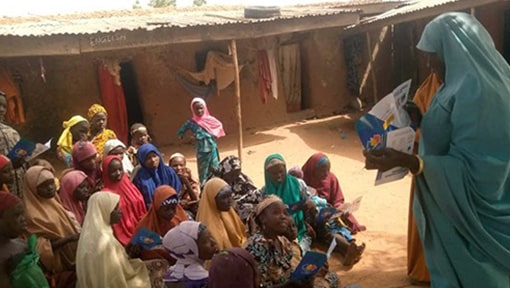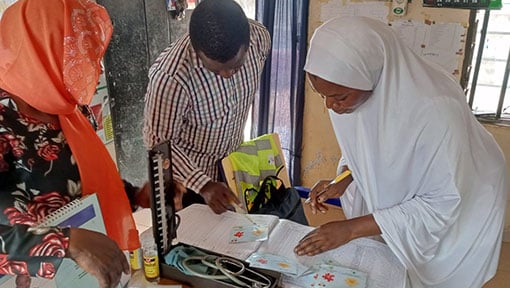Integrated Outreaches Bring Services to the Community and Deliver Results Across East Africa
Integrated outreaches – one of The Challenge Initiative’s (TCI) proven approaches – promote access to family planning services by delivering contraceptives alongside other health services within communities in unlikely venues, such as community grounds, markets or religious spaces on designated days, often free of cost. Mobilizing health services for out-of-facility provision is no small task. It requires advanced planning and coordination with other proven approaches to generate demand for services, collaboration between government and community partners to subsidize commodities, and unwavering commitment from various cadres of staff who must be prepared for the additional challenges of working in a new environment. The results justify the means; integrated outreaches consistently deliver. This is not a surprise, given that the approach is designed to reduce unmet need by reducing geographic and financial barriers.
The Embakasi Sub-county Health Team recently contacted Tupange Pamoja (the brand TCI uses in East Africa) for peer-to-peer coaching (locally referred to as sisi-kwa-sisi) to integrate family planning services into their community outreaches around Nairobi. Embakasi is tucked between Kenyatta International Airport and an expansive national park, where giraffes graze against an urban backdrop. As a sub-county of Nairobi with a primarily lower and middle class population, Embakasi has many informal settlements and health services are not readily available. In response to Embakasi’s request, Tupange Pamoja deployed two coaches to work with the Embakasi team and design a strategy to address the identified gaps in demand generation and service delivery. After reviewing the Integrated Outreach approach, along with resources and tips, on TCI University with their coaches, the Embakasi team learned how to conduct effective family planning integrated outreaches.
The quality of community outreaches in Embakasi Sub-county dramatically improved after putting their newly acquired knowledge from their sisi-kwa-sisi coaching into practice and family planning services are now actively integrated into outreaches. Miss Pauline Ochola, Public Health Nurse and Coordinator of Reproductive Health activities for Embakasi East Sub-County, Nairobi, explains the significance of this change in how they deliver community outreaches:
After the Sisi-kwa-sisi coaching, our outreach numbers have multiplied by more than three times… We … now only integrate two to three other services to avoid losing focus. We are now referencing TCI-University toolkit to ensure that we are adopting what has proven to be the best practices. In our first community outreach after the coaching, we surpassed our target of 80 family planning acceptors and instead achieved 391 family planning acceptors followed by 285 family planning acceptors in the consecutive outreach. Now more women and girls are being reached with family planning services hence reducing the number of unintended pregnancies, unmet need for family planning which is translating to reduction of the maternal mortality.”
The chart below shows how the efforts in Embakasi are paying off.

Embakasi has seen a 50% increase in client volume between baseline (Feb. 2018, just before TCI began implementing) and the year ending June 2019 (Source: HMIS).
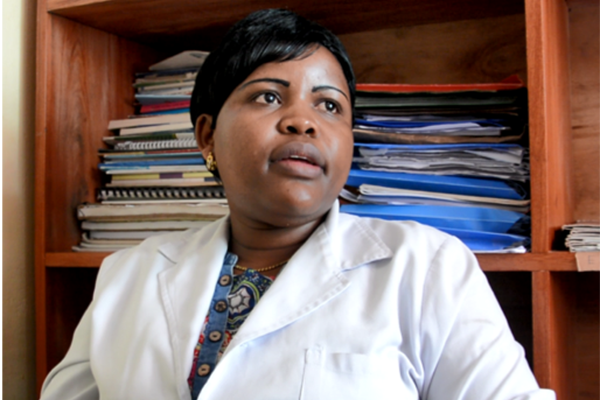
Dr. Glorious August, the in-charge of Arusha Health Centre in Arusha, Tanzania.
Integrated outreaches work in coordination with other proven approaches to ensure that on the day of an outreach, the population is ready to receive services. TCI’s Community Health Workers and Village Health Teams use interpersonal communication, often leveraging the personal connections they have with community members to educate and raise awareness, while dispelling beliefs that are incorrect as they arise. In a Maasai community in Arusha, Tanzania, Dr. Glorious August, the in-charge of Arusha Health Centre shared that before a recent integrated outreach:
Most people were not aware about family planning due to lack of education and misconceptions. For example, some people thought that if you are given depo, you will not conceive again; if you use IUCD, you get cancer of the cervix; implants will move through their bodies to the heart.”
While sensitively correcting these misperceptions, community health workers educate community members about the various methods of family planning, preparing women and men in advance so that they can attend the scheduled outreach if they are interested in adopting a method. Integrated outreaches expand method mix by building the capacity of providers to offer long-acting reversible contraceptives (LARCs), despite the challenge of working within non-traditional clinic settings. In Arusha, for example, women now prefer LARCs such as implants. At a recent integrated outreach there, 70-90 women of the 150 attending in a day took up a family planning method.
The approach has been so successful in Arusha that young people are requesting they increase the number of days for integrated outreaches. In fact, the majority of people receiving services in an integrated outreach in April were youth between the ages of 15- to 24-years old.
Addressing the geographic and financial barriers to family planning uptake isn’t a simple task. However, the guidelines TCI developed with the Government of Kenya for carrying out an integrated outreach is a good place to start. The value of bringing services to people where they are cannot be articulated better than through the words of Namuddu, a 30-year-old mother of five and market vender in Mukono, Uganda:
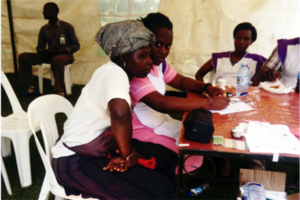
Namuddu is a market vendor in Mukono, Uganda. She recently attended an integrated community outreach event there.
Every time l wanted family planning, l was already pregnant because I am too busy with my business and my husband doesn’t support family planning. So, today a miracle came by my way when l saw a tent and banner for family planning. On coming closer to the tent, I was surprised to find health workers offering free family planning services…This is an opportunity: l have to get a family planning service today.”

